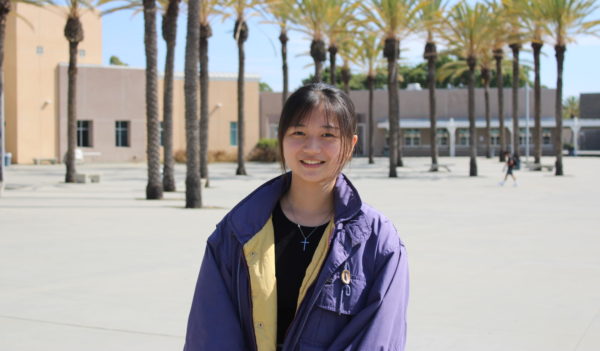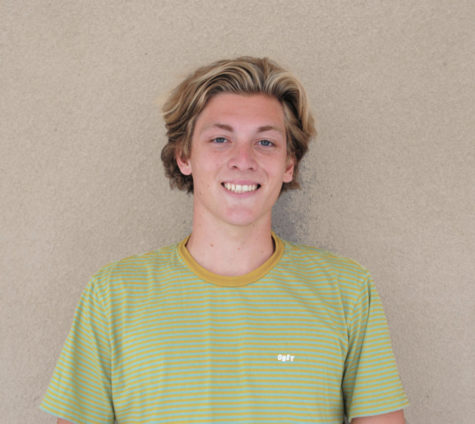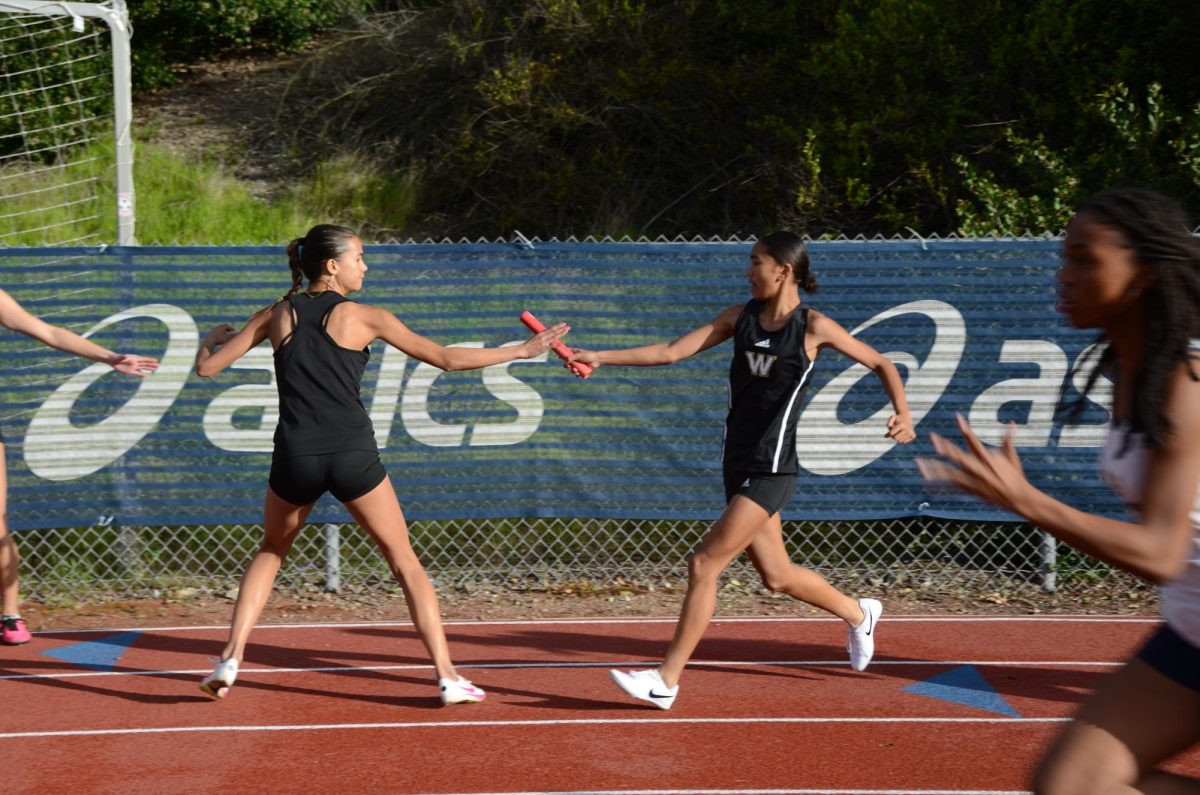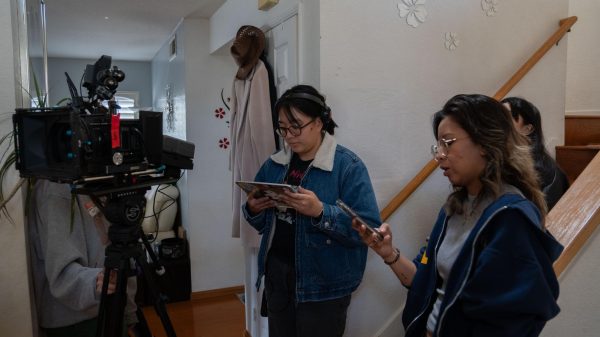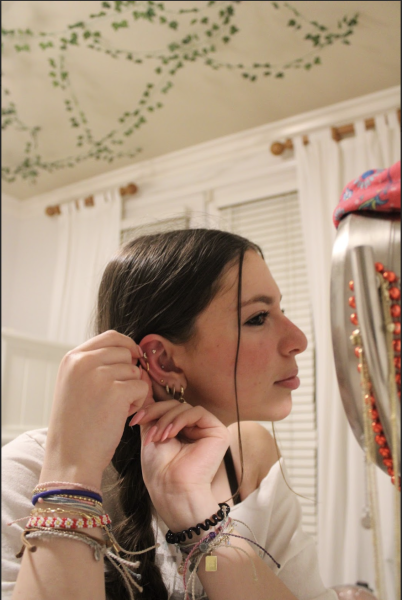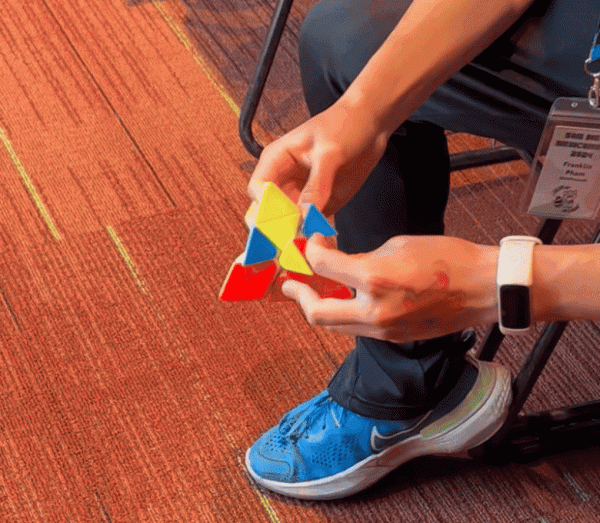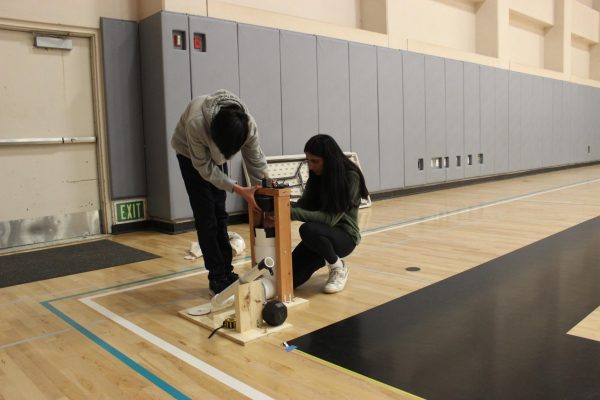Teachers and their kids learn to navigate high school together
March 18, 2022
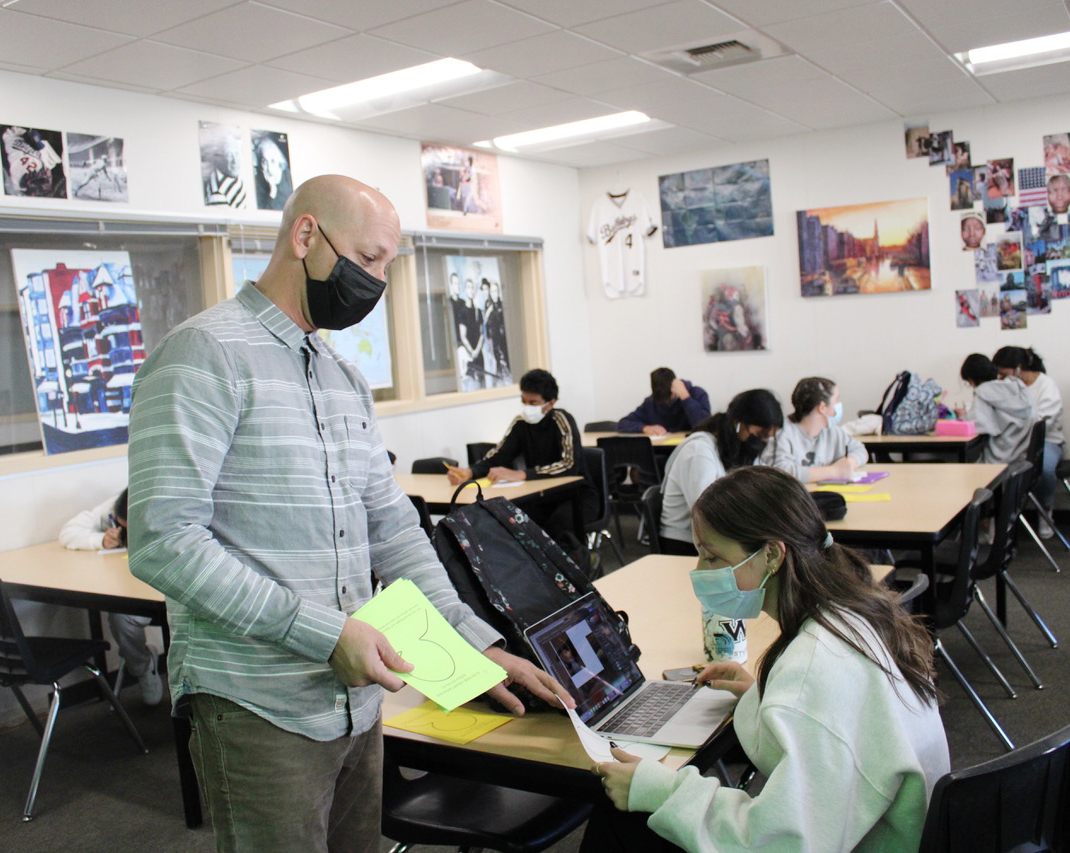
Everyday, Lauren Jennings (12) goes to the same place with her friends. A classroom where she is free to kick back and relax, a place where she always has someone to talk to.
Likewise, on rainy days, Henry Lemersal (11) always has a safe haven to turn to. A warm classroom to store his things in, and a place to which he can always return.
Lauren and Henry are among a small group of students who share their campus with their parents.
Lauren, the daughter of Jim Jennings, and Henry, the son of Antoinette Lemersal, have a permanent safe space on campus where they have a parent to talk to.
“I go in [her classroom], I think, every day,” Henry Lemersal (11) said. “I’ll keep like a fruit in there, or something like that in her fridge. Or something I just don’t want to have on me all day. And it’s always just kind of nice to have a parent around, like for a permission slip, or even just to talk to sometimes when I’m late for something or having a bad day. She’s just always around.”
In addition to children of teachers having a good place to store things, Shawnee Halander (10), daughter of Scott Halander said that she’s made many good memories inside of her dad’s classroom, E103. It’s where she would spend her summer days with other children who had parents working on campus.
Shawnee said that spending time with other teachers’ kids helped them to bond, and enjoyed spending quality time with her newfound friends by doing things in middle school like walking to Mesa Verde together after their parents had dropped them off at Westview.
Unfortunately, having a teacher as a parent doesn’t just give the teacher children new relationships with friends of people who are also the children of teachers, but it also gives you new relationships with teachers, meaning that sometimes they would get information that they didn’t need to know, and vice versa.
“Maybe some of the minuses were that I knew a little bit more [information] about some of my teachers than I wanted to,” Lauren Jennings said. “[Additionally,] when I got here teachers knew me, and knew a lot about me, even though I had no idea who some of them were.”
According to Lemersal, these early interactions with teachers sometimes even lead to awkward interactions during school.
“I had another teacher subbing for a class I was in at one time, and I went up to ask her a question,” Henry said. “And she said to me that it was so weird to see me [at school]. And I [asked] why it was weird. And she told me it was because she used to hold me when I was a baby, and I think that was really confusing to hear a teacher say that they had held me when I was a baby.”
According to AP Chemistry teacher Scott Halander it’s been a surreal experience to be able to actually see and teach his daughter in class.
“So there’s two separate worlds, your home life and your school life,” Halander said. “Normally, your parents are not invading both, so with me and Shawnee, it’s been a really surreal experience for me that those two words have merged.I mean, she’s my daughter, I’ve seen her grow up, and now I am teaching my students, and she’s one of them.”
Though both Henry and Lauren said that having a parent working on campus has been overall beneficial, Henry said he struggled with a few issues, especially as an underclassman.
“It always feels weird when I’m caught talking or something in another class, because I don’t want that teacher going to my mom to report that I’ve been misbehaving,” Henry said. “It hasn’t happened yet, but it’s something that is present in the back of my mind. [Another thing was that] when I was an underclassman, I got a lot of people saying, ‘oh, you’re Mrs. Lemersal’s son,’ which wasn’t my favorite thing in the world. It was kind of strange when people would have my mom as a teacher, and would know me as a result, but you know, now it’s just kind of funny when my friends are like, ‘on my way to your mom’s classroom’. I just got over it.”
Like Henry, Shawnee said she also faced challenges as an underclassman, though in a different way, saying that she feels teachers’ kids are generally expected to be good in the subject that their parents are teaching.
“I find AP [Chemistry] really difficult, and other people expect me to know what I’m doing all the time, and I don’t, so that’s kind of stressful,” Shawnee said. “I think it just kind of depends on whatever your parents [are] teaching, and there’s sort of this [idea] that goes along with it.”
Even though she might experience hardships that other students don’t, Shawnee said she wouldn’t change a thing.
“I can’t really imagine anyone else who would be the teacher instead because I know he’s been working really hard and has been there a really long time,” Shawnee said. “It’s a little bit frustrating for the both of us when I don’t understand stuff, but I feel like we’ve gotten a lot closer because we’ve spent a lot of time together doing AP [Chemistry], so that’s pretty cool. The benefits outweigh the negatives.”


